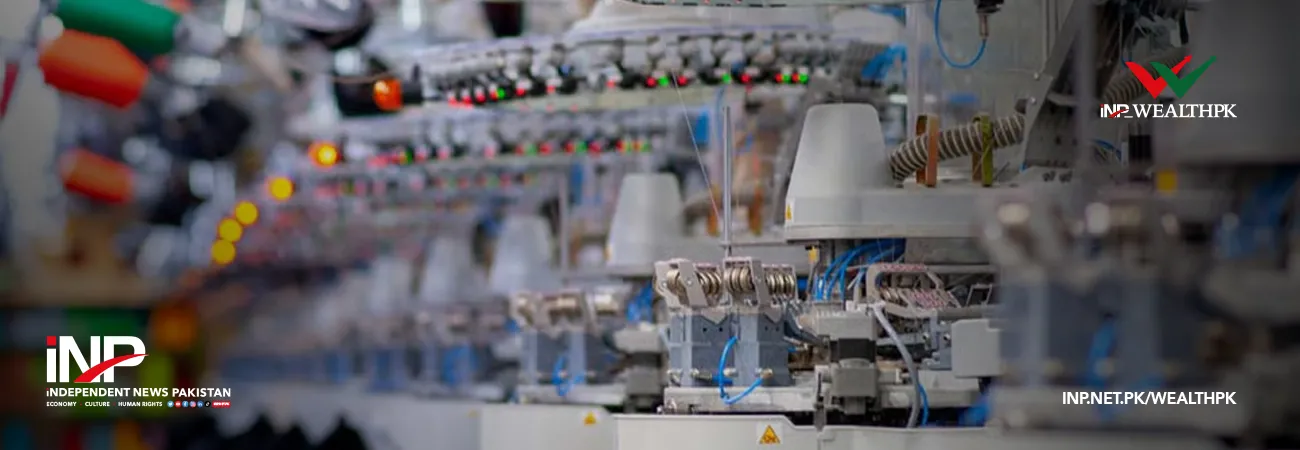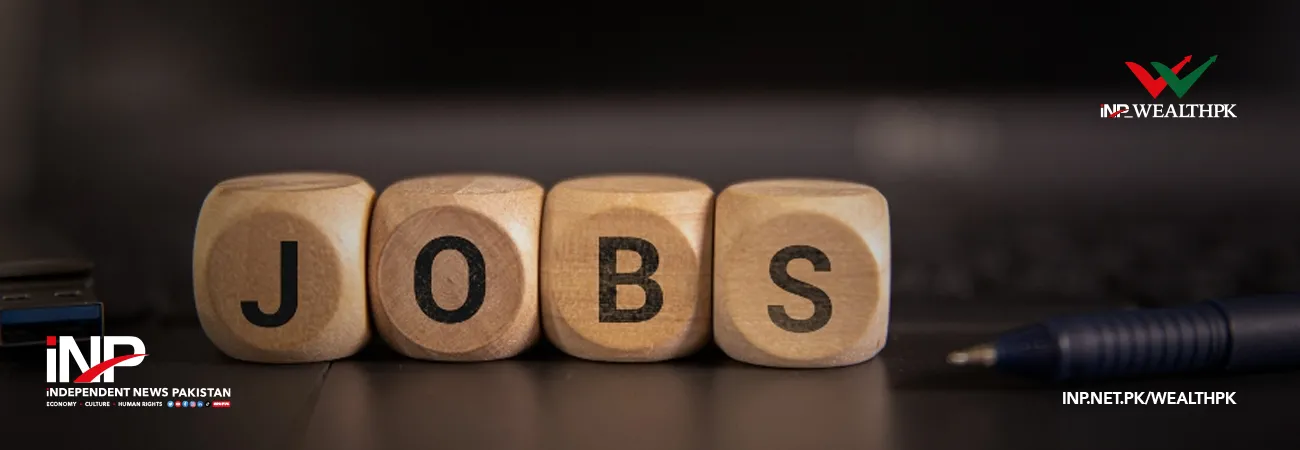INP-WealthPk
Jawad Ahmed
ISLAMABAD, June 14 (INP-WealthPK): Revenues of Unilever Pakistan Foods Limited (UPFL) increased by 30% to Rs6.5 billion in the first quarter (January-March) of calendar year 2022 from Rs5 billion in the same period of last year.
A limited liability company, UPFL is listed on the Pakistan Stock Exchange. It manufactures and sells consumer and commercial food products.
The company is a subsidiary of Conopco Inc. USA, whereas its ultimate parent company is Unilever PLC, United Kingdom, reports WealthPK.
During the period under review, the company registered a sustainable revenue growth on the back of strong fundamentals, including superior product, brand equity, wider reach and effective spending on advertisement and promotion.
Quarterly Results
 Commodity inflation slashed the company’s gross margin by 159 basis points to 44.1% in the first quarter of this year, compared to the same quarter last year. However, revenues increased across the board, with good results from both the retail and food solutions delivery.
During this year’s first quarter, the company saw a significant rise in sales, resulting in a 25.7% increase in earnings per share (EPS).
Future Outlook
Despite the fact that Pakistan’s economic situation remains volatile due to sustained double-digit inflation and rising current account deficit, the UPFL management remains committed to navigating the challenges by leveraging the power of its brands and global and local expertise. The company is confident in its ability to deliver new pack-price architecture and driving cost transformation to ensure efficiencies within the value chain.
The company would continue to deliver competitive, consistent, responsible and profitable growth to all stakeholders.
Shareholding pattern
Commodity inflation slashed the company’s gross margin by 159 basis points to 44.1% in the first quarter of this year, compared to the same quarter last year. However, revenues increased across the board, with good results from both the retail and food solutions delivery.
During this year’s first quarter, the company saw a significant rise in sales, resulting in a 25.7% increase in earnings per share (EPS).
Future Outlook
Despite the fact that Pakistan’s economic situation remains volatile due to sustained double-digit inflation and rising current account deficit, the UPFL management remains committed to navigating the challenges by leveraging the power of its brands and global and local expertise. The company is confident in its ability to deliver new pack-price architecture and driving cost transformation to ensure efficiencies within the value chain.
The company would continue to deliver competitive, consistent, responsible and profitable growth to all stakeholders.
Shareholding pattern
 As of December 31, 2021, Conopco Inc. had a holding of 76.5% of the shares in UPFL. The general public (local) owned over 17% of the total shares, followed by 6.2% of the stocks by the board of directors, the chief executive officer and their spouses. The remaining stakeholder categories had negligible percentage of the company’s equity.
Company Turnover
The company's top line has mostly been rising at more variable rates since the calendar year 2016, while profit margins have been moderately varying.
The gross profit ratio declined to 41.40% in 2019 from 44.96% the previous year, followed by an increase in 2020 and 2021.
In 2018, the company's revenue increased by 10.7% to Rs11.9 billion, up from Rs10.7 billion the previous year, mainly led by volume growth. Due to the challenging operating environment, gross margin remained consistent at 45% during the year.
The company, in the process of expanding capacity and increasing efficiency, invested Rs1 billion during the year.
Its EPS grew by 25.6% from the last year.
As of December 31, 2021, Conopco Inc. had a holding of 76.5% of the shares in UPFL. The general public (local) owned over 17% of the total shares, followed by 6.2% of the stocks by the board of directors, the chief executive officer and their spouses. The remaining stakeholder categories had negligible percentage of the company’s equity.
Company Turnover
The company's top line has mostly been rising at more variable rates since the calendar year 2016, while profit margins have been moderately varying.
The gross profit ratio declined to 41.40% in 2019 from 44.96% the previous year, followed by an increase in 2020 and 2021.
In 2018, the company's revenue increased by 10.7% to Rs11.9 billion, up from Rs10.7 billion the previous year, mainly led by volume growth. Due to the challenging operating environment, gross margin remained consistent at 45% during the year.
The company, in the process of expanding capacity and increasing efficiency, invested Rs1 billion during the year.
Its EPS grew by 25.6% from the last year.
 In 2019, the company achieved a turnover of Rs13.3 billion at a growth rate of 11.7%, mainly led by volume growth. During the year, the company invested Rs1.07 billion to expand capacity and improve efficiency.
EPS also increased by 40.1% year-on-year, owing in part to a tax benefit for capital expenditures.
In 2019, the company achieved a turnover of Rs13.3 billion at a growth rate of 11.7%, mainly led by volume growth. During the year, the company invested Rs1.07 billion to expand capacity and improve efficiency.
EPS also increased by 40.1% year-on-year, owing in part to a tax benefit for capital expenditures.
 In 2020, despite the Covid-19-induced lockdowns, which had a substantial impact on its food solutions category, the firm grew 17.2% to Rs15.57 billion, up from Rs13.29 billion the previous year. Strategic pricing decisions and relevant consumer promotions were used to achieve the target.
Gross margin increased by 1.49% to 42.9% through better cost absorption and a rigorous savings agenda. The company, in order to expand capacity and increase efficiency, invested Rs363.5 million during the year.
EPS grew by 56.4% compared to last year driven by growth, margin improvement and tax credits pertaining to capital expenditure.
In 2020, despite the Covid-19-induced lockdowns, which had a substantial impact on its food solutions category, the firm grew 17.2% to Rs15.57 billion, up from Rs13.29 billion the previous year. Strategic pricing decisions and relevant consumer promotions were used to achieve the target.
Gross margin increased by 1.49% to 42.9% through better cost absorption and a rigorous savings agenda. The company, in order to expand capacity and increase efficiency, invested Rs363.5 million during the year.
EPS grew by 56.4% compared to last year driven by growth, margin improvement and tax credits pertaining to capital expenditure.
 In 2021, the business recorded a broad-based growth of 27.3% to Rs19.82 billion up from Rs15.57 billion the previous year, led by both food solutions and retail business. Despite a challenging year, the brand was able to record a reasonable sales growth. This was achieved by strategic pricing decisions and relevant consumer promotions.
Gross margin increased by 2.1% to 45% through better cost absorption, timely pricing, and a rigorous cost reduction/productivity improvement programme.
During the year, the company invested Rs658 million to enhance capacity and improve efficiency. Growth and improved margins drove a 34.7% increase in EPS from the previous year.
In 2021, the business recorded a broad-based growth of 27.3% to Rs19.82 billion up from Rs15.57 billion the previous year, led by both food solutions and retail business. Despite a challenging year, the brand was able to record a reasonable sales growth. This was achieved by strategic pricing decisions and relevant consumer promotions.
Gross margin increased by 2.1% to 45% through better cost absorption, timely pricing, and a rigorous cost reduction/productivity improvement programme.
During the year, the company invested Rs658 million to enhance capacity and improve efficiency. Growth and improved margins drove a 34.7% increase in EPS from the previous year.













